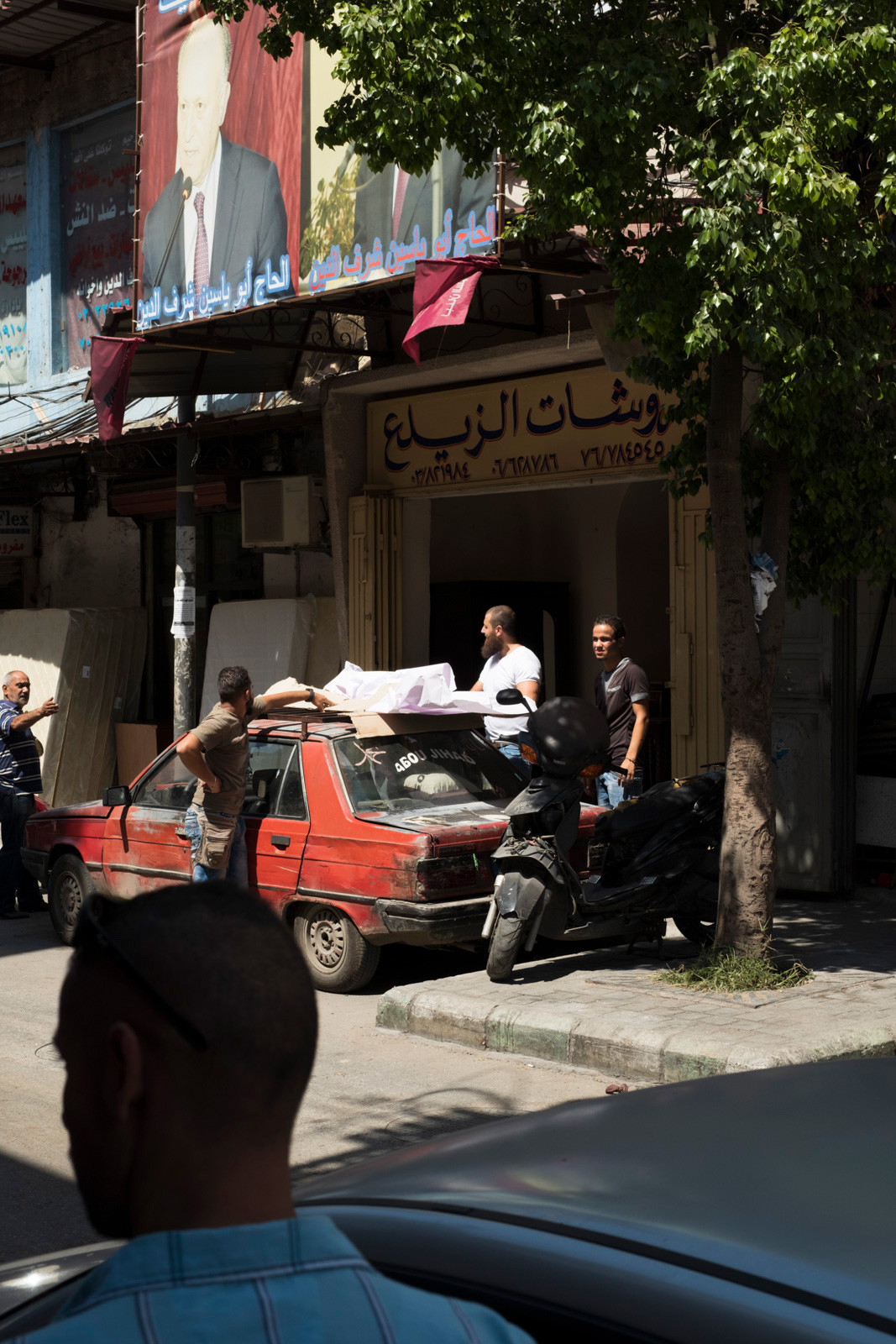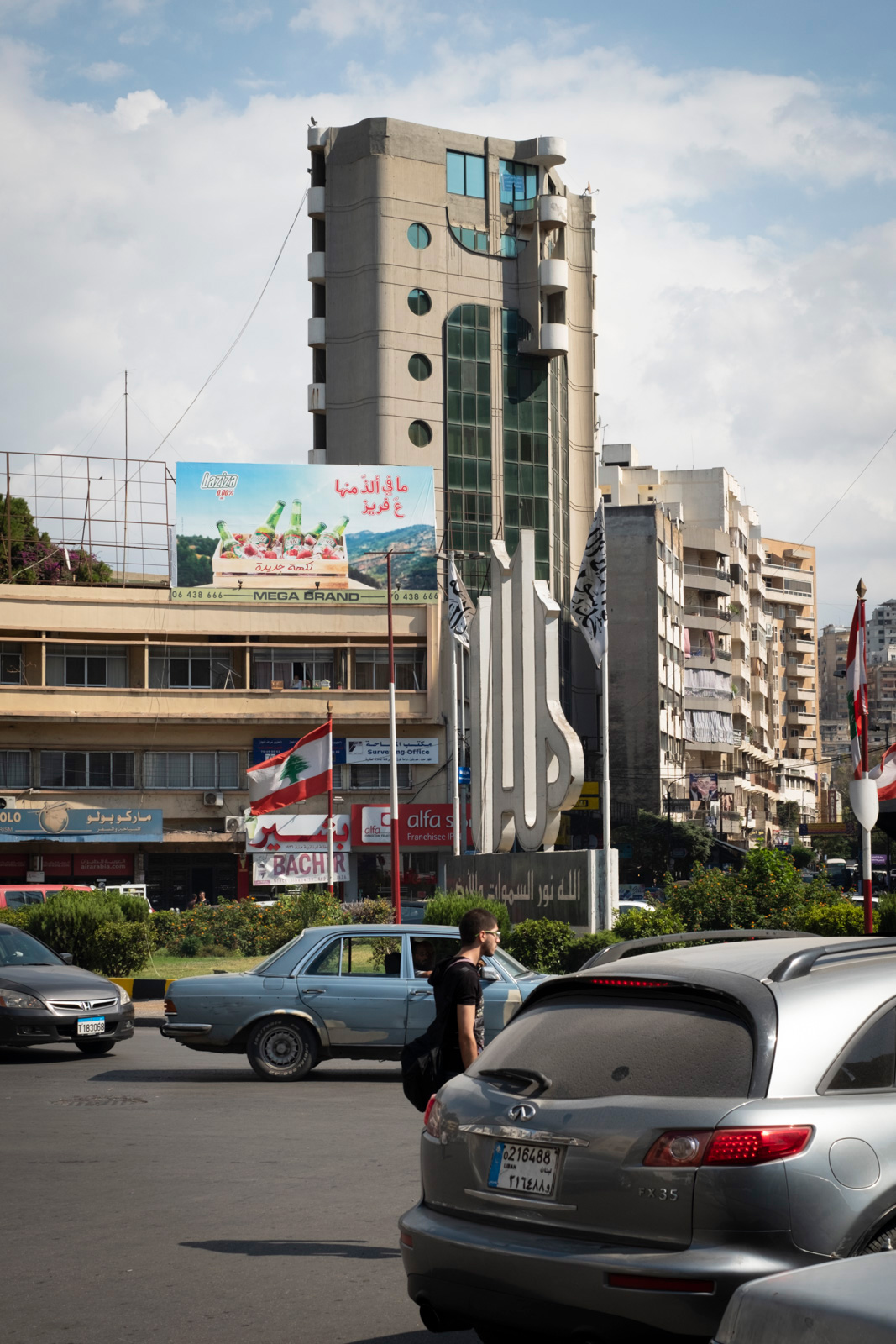“Beirut? She is like a big mother, but tired,” is how a taxi driver describes his city to me. He tells me about the hardships of everyday life, like the unreliable electricity supply or the misery caused by garbage piling up; about mismanagement and corruption. And that it makes no difference whether Lebanon has a government or not. “It’s all the same,” he says. Beirut seems like a puzzle to me – composed of a variety of pictorial fragments. The oscillation between the worlds of the east and the west shapes Lebanese identity: “I don’t feel like an Arab, but I don’t feel like a Westerner either: I’m something in between,” another taxi driver tells me.
-
(216)

Faraya – Giant Statue of Saint Charbel
_Auf-der-Startseite-anzeigenLebanon
2018-11-05 -
(215)

Faraya – Qaraoun Reservoir
_Auf-der-Startseite-anzeigenLebanon
2018-11-05 -
(214)

Tripoli
_Auf-der-Startseite-anzeigenLebanon
2018-11-01 -
(213)

Tripoli
_Auf-der-Startseite-anzeigenLebanon
2018-11-01 -
(212)

Tripoli
_Auf-der-Startseite-anzeigenLebanon
2018-11-01 -
(211)

Tripoli
Lebanon
2018-11-01 -
(210)

Tripoli
Lebanon
2018-11-01 -
(209)

Tripoli
Lebanon
2018-11-01 -
(208)

Tripoli – International Fairground
Lebanon
2018-11-01 -
(207)

Tripoli
Lebanon
2018-11-01 -
(206)

Tripoli
Lebanon
2018-11-01 -
(205)

Tripoli – Connexion
_Auf-der-Startseite-anzeigenLebanon
2018-11-01 -
(193)

Beirut – Al Amin Mosque
Lebanon
2018-10-24 -
(192)

Beirut – Sami El Solh
Lebanon
2018-10-24 -
(191)

Beirut – Furn el Chebbak
Lebanon
2018-10-24 -
(190)

Beirut – St. George Bay
Lebanon
2018-10-24 -
(189)

Beirut – Waterfront
Lebanon
2018-10-24 -
(188)

Beirut – Old Saida Road
Lebanon
2018-10-24 -
(187)

Beirut – Ain Er Rommane
Lebanon
2018-10-24 -
(186)

Beirut – Sanayeh Public Garden
Lebanon
2018-10-24 -
(185)

Beirut – Furn El Chebbak
Lebanon
2018-10-24 -
(184)

Beirut Corniche
Lebanon
2018-10-24 -
(183)

Beirut Corniche
Lebanon
2018-10-24 -
(182)

Beirut – Borj Hammoud
Lebanon
2018-10-24 -
(181)

Sunset at Beirut Central District
Lebanon
2018-10-24 -
(180)

Baalbek – Provincial Capital
Lebanon
2018-10-19 -
(179)

Baalbek – Roman Temple Site
Lebanon
2018-10-19 -
(178)

Baalbek – Temple of Jupiter
Lebanon
2018-10-19 -
(177)

Baalbek – Stone with fertility symbol
Lebanon
2018-10-19 -
(176)

Baalbek – Temple of Venus
Lebanon
2018-10-19





























